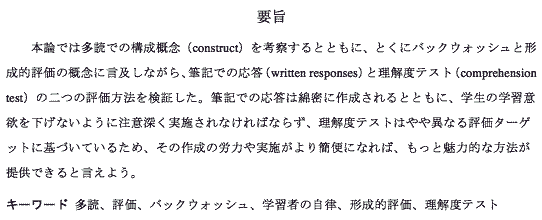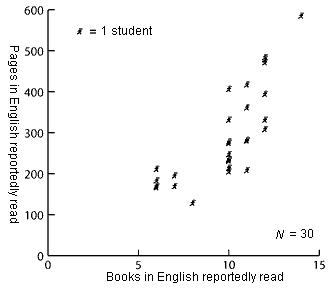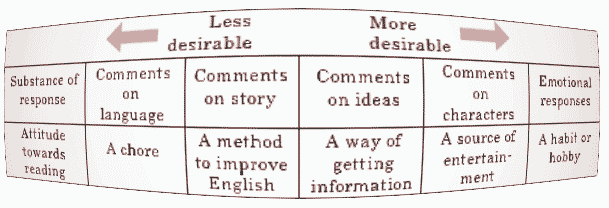May 23 - 24, 2009. Chiba, Japan: Toyo Gakuen University, Nagareyama Campu. (pp. 45 - 53)
Assessing extensive reading through written responses and comprehension testsby Mark Brierley (Shinshu University) |
| Abstract |
|
This paper considers the extensive reading construct and examines two kinds of assessment – written responses to books and comprehension tests –
with particular reference to the concepts of backwash and formative assessment. The use of written responses must be carefully considered and sparingly applied
to ensure that we are not demotivating students. Comprehension tests are based on a slightly different construct and may present a more attractive option, if
challenges in their construction and delivery can be overcome. Keywords: extensive reading, assessment, backwash, learner autonomy, formative assessment, comprehension tests  |


